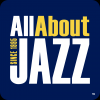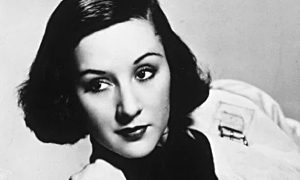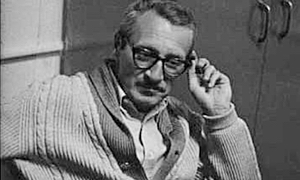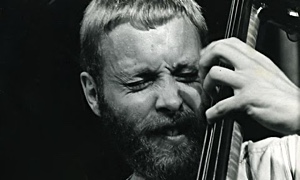Home » Jazz Articles » First Time I Saw » Freddie Hubbard at the Jazz Cafe in London
Freddie Hubbard at the Jazz Cafe in London
However, somewhere in the dead years of 1970's jazz-fusion, Hubbard lost something of his sparkle and, despite a return to form in the great V.S.O.P quintet, his own output became lacklustre and his crown slipped, compounded by a split lip and personal problems in the 1980's.
I felt incredible excitement when I found out Freddie was playing some dates in the UK. Despite inconsistent form for many years and unflattering reports of recent jaded performances across the pond, I wasn't fazed.
As I arrived at the gig I was immediately struck by the poor turnout. Wayne Shorter was soon to be playing The Royal Festival Hall as part of the high-profile London Jazz festival, a huge concert hall, while Hub was scraping around in this tiny venue. I was disappointed for Freddie.
Finally the band took to the stage. An octet: alto, tenor, baritone, trumpet, trombone, piano, bass and drums. They struck up the first number, a decidedly fuzzy sounding performance. The second number began. The alto player looked disinterested, the band looked bored. But where was Freddie, had he arrived? I'd heard some rumours of him missing gigs and began to feel concerned.
However, third tune in and Freddie's heavy frame complete with tilting Fedora hat descended the steep steps to the bandstand, his trademark flugelhorn in hand. He blew briefly then stoically placed his horn on the top of the piano. Hamming it up, he joked and pulled faces at the audience, at the same time looking a bit lost—it was a bit sad. He looked confused, and disappointed by the audience. He played a little more then put his horn down again. He tried hard not to look frustrated in the decline of his once legendary chops but he could barely disguise it.
At one touching moment he murmured to the band, 'you guys have got my back.' It was true, they did. Strong solo work from Craig Handy on tenor and Myron Walden on alto lifted a very mediocre performance a little. After another couple of extended numbers, Hubbard left the stage for a brief breather.
Then something seemed to happen. On his return to the stage he turned to the band, "let's do 'Caravan.'" The drummer began to swing the tunes distinctive rhythm and its Eastern melody line curled forth from the front line. Things seemed to switch to another gear. Hubbard's solo was harder and more focused. A couple of times there were brief glimpses of those huge tyre screeches, gruff rasps and quivering half-valves of old. Then the band played the thumping Hubbard original, "One of A Kind" with glee. Hubbard turning to the drummer, "first I play with Blakey, then I play with Chambers—now YOU!" The crowd demanded an encore. Hubbard moved to the piano and began to play the sparse opening chords of "Red Clay," before reaching for his horn and taking another solo.
Afterwards I hung around to meet the great man. I had taken my original copy of 'Backlash' to be signed. I put the sleeve on the table in front of him and a palpable wave of nostalgia spread across his face.
His eyes widened, "ahhhh, 'Backlash,'" this was about the time Nina Simone was doing a song... "Mississippi Goddamn," you know that tune?' I knew the tune—a righteous gospel against American racism. 'This was me, doing my thing.' I said, 'is this an angry record?' 'No, it's not an angry record; it's a protest record. On the cover, this is me trying to look mean, but I was too young to be mean,' he cast his wide hands nostalgically over his youthful jaw line. "The photographer said you don't look mean, you just pouting!"
Occasionally the conversation stopped for Hubbard to say, "whose this playing now, whose this pianist?" We all stopped while he listened for a second or two. It was a bit put on and manufactured but it was part of his charm.
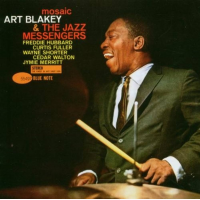 I said, 'what is your favourite period of your work,' informing him of my love of the album Mosaic; by the jazz messengers. He said, 'Blakey, that was my peak, in the early '60's.
I said, 'what is your favourite period of your work,' informing him of my love of the album Mosaic; by the jazz messengers. He said, 'Blakey, that was my peak, in the early '60's. Then I asked about his favourite drummers. 'There was a guy over here in the UK, called Phil Seamen, who I thought was great. There was Philly Joe Jones I liked, and then later on along came Elvin Jones with a great big sound I thought was great.' Finally, he signed my album 'To Robert, stay kool, Freddie Hubbard.' I thanked him and he warmly shook my hand.
Outside, I felt a huge wave of adrenalin; I was so excited I had met Freddie, the tube seemed unnecessary and instead I floated back to the train station. By the time I got home I was still too excited to sleep, reading those six words over and over. Instead, I looked through my old Hubbard albums, and there on the sleeve of Open Sesame recorded way back in 1960 was Freddie, holding that huge hand aloft, the hand that I had shaken just a couple of hours ago.
Tags
First Time I Saw
Freddie Hubbard
Rob Hancock
Bobby Hutcherson
Andrew Hill
Eric Dolphy
Wayne Shorter
Craig Handy
Myron Waldron
Philly Joe Jones
Elvin Jones
PREVIOUS / NEXT
Support All About Jazz
 All About Jazz has been a pillar of jazz since 1995, championing it as an art form and, more importantly, supporting the musicians who make it. Our enduring commitment has made "AAJ" one of the most culturally important websites of its kind, read by hundreds of thousands of fans, musicians and industry figures every month.
All About Jazz has been a pillar of jazz since 1995, championing it as an art form and, more importantly, supporting the musicians who make it. Our enduring commitment has made "AAJ" one of the most culturally important websites of its kind, read by hundreds of thousands of fans, musicians and industry figures every month.

